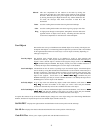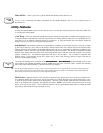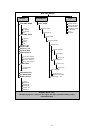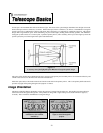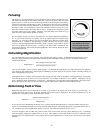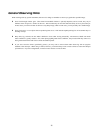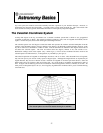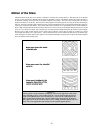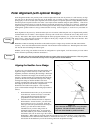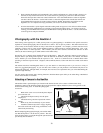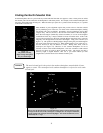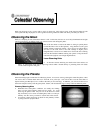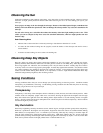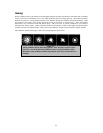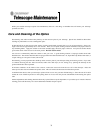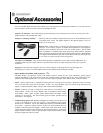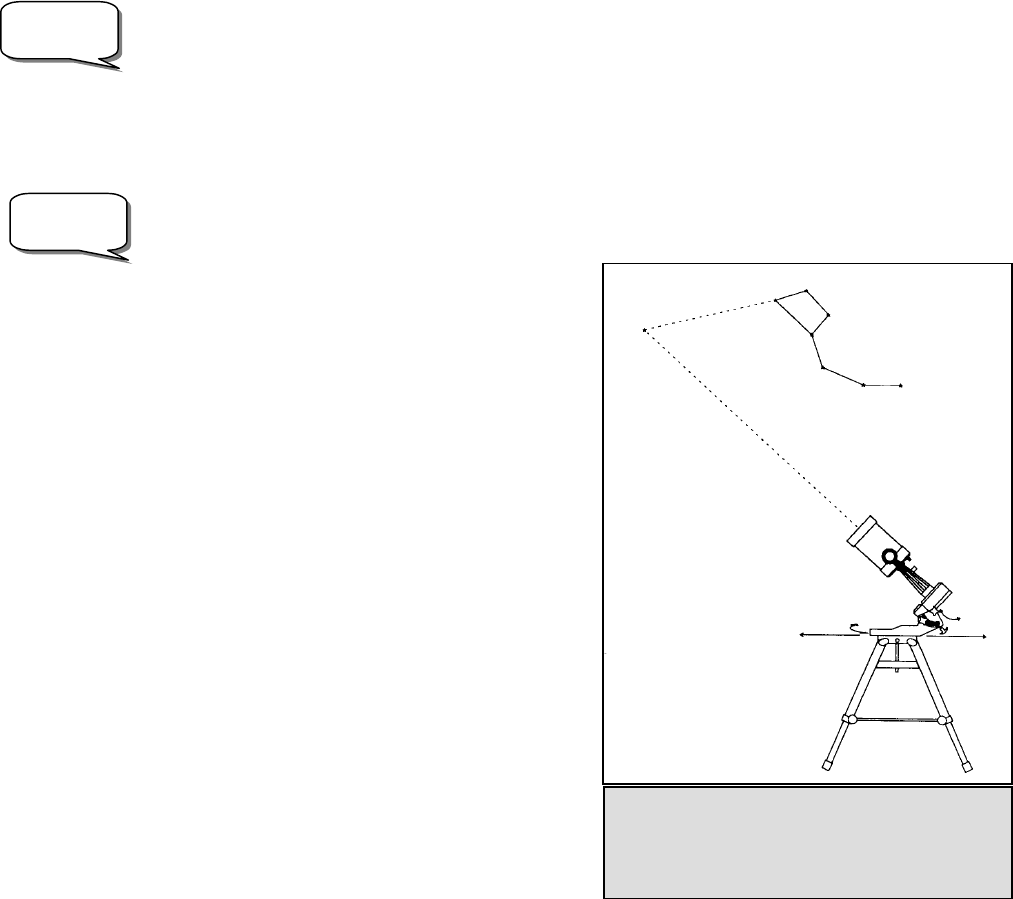
29
P
P
o
o
l
l
a
a
r
r
A
A
l
l
i
i
g
g
n
n
m
m
e
e
n
n
t
t
(
(
w
w
i
i
t
t
h
h
o
o
p
p
t
t
i
i
o
o
n
n
a
a
l
l
W
W
e
e
d
d
g
g
e
e
)
)
Even though the NexStar can precisely track a celestial object while in the Alt-Az position, it is still necessary to align
the polar axis of the telescope (the fork arm) to the Earth's axis on rotation in order to attempt long exposure astro
photography. To do an accurate polar alignment, the NexStar requires an optional equatorial wedge (#93658) between
the telescope and a tripod. Celestron also offers a steel tripod with an attached wedge tilt plate (#93497). This allows
the telescope's tracking motors to rotate the telescope around the celestial pole, the same way as the stars. Without the
equatorial wedge, you would notice the stars in the eyepiece would slowly rotate around the center of the field of view.
Although this gradual rotation would go unnoticed when viewing with an eyepiece, it would be very noticeable on
film.
Polar alignment is the process by which the telescope's axis of rotation (called the polar axis) is aligned (made parallel)
with the Earth's axis of rotation. Once aligned, a telescope with a clock drive will track the stars as they move across
the sky. The result is that objects observed through the telescope appear stationary (i.e., they will not drift out of the
field of view). If not using the clock drive, all objects in the sky (day or night) will slowly drift out of the field. This
motion is caused by the Earth's rotation.
Remember, whenever attaching the NexStar to the NexStar tripod or wedge, always use the bolts that come with the
accessory. Never use bolts that thread more than 3/8" into the bottom of the NexStar base. Threading bolts more than
3/8" into the base will damage the internal gears.
Whether you are using your NexStar in the Alt-Az configuration or polar aligned, it will be necessary to locate where
north is and more specifically where the North Star is.
The polar axis is the axis around which the telescope rotates when moved in right ascension. This axis points
the same direction even when the telescope moves in right ascension and declination.
A
A
l
l
i
i
g
g
n
n
i
i
n
n
g
g
t
t
h
h
e
e
N
N
e
e
x
x
S
S
t
t
a
a
r
r
4
4
o
o
n
n
a
a
W
W
e
e
d
d
g
g
e
e
In order to do a star alignment while using the NexStar on an
equatorial wedge it will be necessary to alter some of the
alignment procedures when doing the AutoAlign. Before the
NexStar is attached to the wedge, slew the telescope so that
the tube is pointed straight up overhead (the tube should be
parallel to the fork arm). Attach the telescope to the wedge
and angle the wedge so that the NexStar's fork arm is
pointing towards Polaris. Move the tripod side to side and tilt
the wedge up and down until Polaris is aligned in the
StarPointer and visible in the eyepiece. Now recycle the
power on the NexStar and begin the AutoAlign procedure as
follows:
1. When the hand control asks you to point the tube
north and level, use the arrow keys to rotate the
telescope tube downward until the tube is
perpendicular (at 90º) with the fork arm.
2. Continue to enter the date and time as requested.
When asked to "choose location", you must scroll
down to the Enter Long / Lat option. Since the
telescope's fork arm is pointed at the celestial pole
(Polaris), you will need to enter location
information as if you were doing an Alt-Az
alignment from the North Pole. To accomplish
this, when asked for your locations latitude, input
the number +89º (-89º for observing in the southern
hemisphere). When asked for longitude, input the longitude for your current location. A list of longitudes
and latitudes can be obtained in most Atlases or on the Celestron web site. You will probably want to save
this location in the database if you will be observing often from an equatorial wedge.
Definition
Figure 7-3
This is how the telescope is to be set up for polar
alignment. The tube should be parallel to the
fork arm which should be pointed to Polaris.
Warning!



